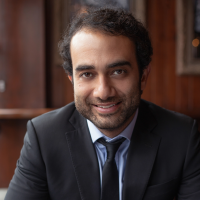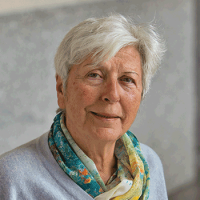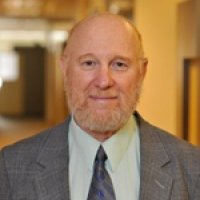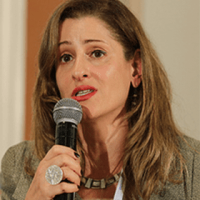Five Years In: The Legacy of the Arab Spring
Panel One: The Makeup of Post-Arab Spring Politics
Four experts offered their analysis on the effects of the Arab Spring on political and governance issues in the Middle East and assessed the lasting impacts on the region’s political fabric.
On February 10, 2016, the Middle East Program and the Environmental Change and Security Program at the Woodrow Wilson Center hosted the event “Five Years In: The Legacy of the Arab Spring.” Panel one of the event, “The Makeup of Post-Arab Spring Politics,” featured speakers Shadi Hamid, Senior Fellow at the Brookings Institution’s Center for Middle East Policy; Amy Hawthorne, Deputy Director for Research at the Project on Middle East Democracy; Robin Wright, USIP-Wilson Center Distinguished Fellow; and Paul Salem, Vice President for Policy and Research at the Middle East Institute. Marina Ottaway, Middle East Fellow at the Woodrow Wilson Center, moderated the event.
Hamid began by framing the Middle East five years after the Arab Spring in terms of a widespread pattern of violence and repression. He noted that terrorists and autocrats alike are using violence to coerce a new social compact between the people and the state. Hamid explained that the end of the Ottoman Empire and the resulting absence of a caliphate left a legitimacy deficit in the Middle East, resulting in a perpetually untenable situation in which people cannot agree on the meaning, purpose, or nature of the nation-state.
Hawthorne argued that a rejection of the prevailing system of legitimacy is at the heart of the current turmoil in the region. She commented that many of the authoritarian regimes in the region had built their legitimacy on a sense of post-colonial identity, nation-building, stability, and social and economic progress. However, she said, by 2011 these sources of legitimacy were no longer strong enough to sustain a number of the autocratic regimes. Hawthorne closed by predicting a second wave of change and pointing out the crucial nature of the Arab middle class in defining political legitimacy in their states moving forward.
Wright continued the conversation on legitimacy by drawing on her experience in Tunisia as an international elections monitor during the 2014 presidential election. She explained that despite the country’s “pristine” election and model constitution, the low voter turnout among youth and rural populations indicates a dearth of true political legitimacy. She then discussed the merits and weaknesses of framing the Middle East in terms of sectarianism. While the divides between Sunni and Shi’a populations continue to play a factor, Wright said, the more interesting ideological split is intra-Sunni, especially between different interpretations of Wahhabism. She also argued that the divides may be more usefully described as identity issues, with people deriving their positions from primordial senses of self in the face of instability and violence.
Salem discussed political trends and the state of Islamist, nationalist, and pro-democracy movements in the Middle East. He remarked that despite the hopeful rise of Islamism as a legitimate governing force in 2012, the movements have since collapsed due in part to poor leadership and decision-making, public backlash, and splits in revolutionary coalitions. He said nationalism, especially in Egypt, has risen to counter Islamism as a narrative and offer a more stable, if repressive, political environment. In closing, Salem predicted that the near future of the region will have limited political discourse, with pro-democracy movements failing to hold widespread appeal given legitimate fears of state collapse.
In the question and answer portion of the event, the panel responded to a question regarding whether or not discussing ISIS in the context of political legitimacy in turn legitimizes ISIS. Hamid responded that while it is important to question the implications of the context in which ISIS is discussed, the tendency to dismiss ISIS as a group of disorganized fanatics undermines critical understanding of the group. He stressed that U.S. policymakers must take ISIS seriously and think critically about its sources of legitimacy.
By Veronica Baker, Middle East Program
Panel Two: Physical Destruction and Prospects for Reconstruction
Four experts from varied fields shared their views on the physical destruction and damage sustained across the MENA region and the future for reconstruction five years after the Arab Spring.
On February 10, 2016, the Middle East Program and the Environmental Change and Security Program at the Woodrow Wilson Center hosted the event “Five Years In: The Legacy of the Arab Spring.” Panel two of the event, “Physical Destruction and Prospects for Reconstruction,” featured speakers Marwa Daoudy, Assistant Professor of International Relations at Georgetown University; Erika Weinthal, Lee Hill Snowdon Professor of Environmental Policy and Associate Dean for International Programs at Duke University; Nadim Khouri, independent researcher for The World Bank; and Richard Cincotta, Global Fellow at the Wilson Center and Director of the Global Political Demography Program at the Stimson Center. Henri J. Barkey, Director of the Middle East Program at the Woodrow Wilson Center, moderated the panel.
Daoudy began the conversation by acknowledging how easy it is to think pessimistically about the situation in the Middle East but said she hoped to end on a more optimistic note regarding the prospects for reconstruction. She centered her comments on Syria and the impact war has had on its people. In addition to war destroying aspects of physical infrastructure like housing, it also has stirred what she called “human de-development,” or a loss of human and cultural capital. She noted both types of destruction are often framed from a Western security perspective, such as America’s constant concerns over ISIS. But it is also important, Daoudy stressed, to relocate the debate to the primary victims of this conflict— people in the region. She went on to discuss physical destruction as it relates to the impact on education. Attacks in Syria have targeted schools and state resources, in turn, have moved away from education, leading to poor school attendance. Daoudy said many believe the state of Syria today is worse off than Germany was post-World War II. She expressed the need for a more transparent and inclusive process on the road to reconstruction and to rethink the relationships between people and societies.
Although Weinthal centered her comments on water security, she also stressed the importance of looking more broadly at the issue as it relates to impacting human lives in the region. Infrastructure, such as water supply, has been targeted as a means to inflict harm on civilians amidst conflict. She asked the audience to consider the question, “How do we use water to restore livelihood?” She then discussed climate change, infrastructure, refugee flows, post-conflict reconstruction, and the future of the UN’s Sustainable Development Goals (SDGs) as challenges related to water security. Weinthal pointed to the example of Syria to show the impact that targeting infrastructure has on a community. As power and pumps are affected, humanitarian challenges such as contamination, illness, and other health impacts arise. She stressed that one of the most important things to think about after conflict ends is establishing potable water sources. Weinthal suggested there is a greater need for integration of the SDGs to rebuild water institutions in fragile, conflict-affected zones.
Khouri built upon Daoudy and Weinthal’s presentations, as they, he said, set the stage for his discussion on food security. He emphasized that while we are waiting and hoping for an end to the conflict, there are immediate issues, such as resource scarcity, that need to be addressed. In addition to making recommendations for the future, Khouri also looked at overall trends. He stated that displaced refugees in the region are contributing to the lack of resources and shared the statistic that seven million people have been internally displaced in Syria alone. Khouri noted that there is an immediate need to focus on rebuilding the agricultural sector. He expressed the importance of focusing on the local production of food, particularly in rural areas, as a means to increase food security and the necessity of redirecting public investments throughout the region.
Cincotta focused his presentation on the shifts in age demographics across the region. He looked to his presented graphics demonstrating changes in Tunisia over time to illustrate his points. For instance, he noted the age distribution that Tunisia, a relatively young country, has achieved makes for a promising future stable, liberal democracy because age-structural change is an indicator for political opportunity and risk. When a country has a more pyramidal age distribution, this signifies a more positive and democratic future. Cincotta posited that Egypt will not be able to achieve the kind of distribution seen in Tunisia until after 2040. He concluded his remarks by saying that in terms of identifying future trends, ultimately, ideology trumps demography.
Barkey asked the panelists how we should go about moving forward after the wars end, given the enormous challenge of post-conflict reconstruction. Weinthal suggested the need for a more intersectional way of thinking, such as more seriously involving women, the informal sector, and other groups in resolving these issues. Daoudy, who agreed with Weinthal’s comments, also considered the importance of looking to past conflicts, such as the truth and reconciliation commissions in South Africa, as a means for finding post-war resolutions and institution building. Khouri added that should we find ourselves post-conflict, we need to seriously settle inter-Arab issues at local and community levels. Cincotta had the final response to Barkey’s question, saying that after cataclysms like Syria, it takes a lot of energy from both sides (in the MENA region and in the rest of the world) to find renewal.
By Elena Scott-Kakures, Middle East Program
Speakers



Former Senior Research Associate and Head of the Middle East Program, Carnegie Endowment for International Peace


Associate Professor of International Relations and Seif Ghobash Chair in Arab Studies, Georgetown University

Senior Fellow, Council on Foreign Relations
Hosted By

Middle East Program
The Wilson Center’s Middle East Program serves as a crucial resource for the policymaking community and beyond, providing analyses and research that helps inform US foreign policymaking, stimulates public debate, and expands knowledge about issues in the wider Middle East and North Africa (MENA) region. Read more


Environmental Change and Security Program
The Environmental Change and Security Program (ECSP) explores the connections between environmental change, health, and population dynamics and their links to conflict, human insecurity, and foreign policy. Read more
